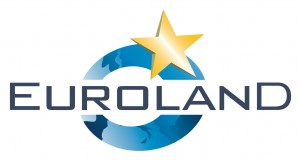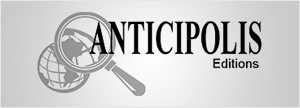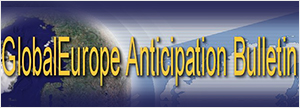According to research done by EOS/Gallup for the European Commission, European companies say that they are excessively shackled by the poor quality of regulation. They put the cost of regulation at 4% of Community GDP. 15% of this cost, or 0.6% of Community GDP, could be avoided by better regulation, bringing a saving of some EUR 50 billion.
Even if the concern for better regulation is rooted back to 1992 at the Edimburgh European Council, it has been seriously considered and politically baked up at the Lisbon European Council in March 2000. The Commission has already presented an interim report (COM(2001)130) to the Stockholm European Council, and the White Paper on European Governance has proposed useful guidelines (COM(2001)428). Since, a High-level advisory group, set up by the Ministers for the national civil services in November 2000, has delivered important and high-quality input on all aspects of this problem. The report of the Group, chaired by Mr Mandelkern, contains an in-depth analysis of good practices for ensuring quality regulation across the whole of the legislative cycle[[Final report of the Mandelkern Group]].
The EU White paper on governance thrive for greater transparency in initiating new legislation. After extensive consultation, the European Commission which is criticised for being bureaucratic and far from citizens expectations, has released a White Paper on Governance. The paper concludes that “the Union must renew the Community method by following a less top-down approach and complementing its policy tools more effectively with non-legislative instruments. No matter how EU policy is prepared and adopted, the way this is done must be more open and easier to follow and understand”. The Commission promises to provide:
Up-to-date, on-line information on preparation of policy through all stages of decision-making. There needs to be a stronger interaction with regional and local governments and civil society.
Member States bear the principal responsibility for achieving this. But the Commission for its part will:
. Establish a more systematic dialogue with representatives of regional and local governments through national and European associations at an early stage in shaping policy. Bring greater flexibility into how Community legislation can be implemented in a way which takes account of regional and local conditions.
. Establish and publish minimum standards for consultation on EU policy.
. Establish partnership arrangements going beyond the minimum standards in selected areas committing the Commission to additional consultation in return for more guarantees of the openness and representativity of the organisations consulted.
The consultation on the White Paper is still open until the end of this month, where any informed and Internet connected citizen could post its comments. Many interest groups have already responded.
The Commission about to propose an action plan for simpler and better legislation
On 5 December 2001, the European Commission adopted a Communication on the “Simplifying and improving the regulatory environment” (COM(2001) 726), which stresses that “regulatory improvement and simplification remain an absolute necessity for the future of the European Union”, underlining the need for a co-ordinated and operational strategy among the EU institutions and Member states, in order to respond to 4 “pressing concerns”:
. simplifying and improving the acquis communautaire ;
. well prepared and more appropriate legislation ;
. a new culture within the institutions ;
. better transposition and application of Community law.
It announces that the Commission will propose a detailed plan of action for a “simplifying and improving the regulatory environment in Europe” by June 2002.
Recently, the European Commission (DG Enterprise) presented with the political support of Commissioner Liikanen and Director General Fabio Colasanti, the outcome of its “Business Impact Assessment Pilot Project”, which was conducted on 4 technical Directives, to be drafted or revised.
{The main conclusions of the report are:}
. to use impact assessments as a tool for knowledge-based decision making, making use of pre-assessment notices and general guidelines on the impact assessment process;
. make use of appropriate analytical tools, including economic and other analytical studies, risk analysis, common technical guidelines and exchange of good practice;
. make use of expertise, including increased use of external consultation for collection and validation of data, analysis and ideas, and the implementation of key minimum standards for consultation;
. improve coherence in reporting, including an early dialogue with the European Parliament and the Council foster continuous learning and support, including the provision of a central quality control unit of the Commission over the decentralised responsibilities of Services undertaking impact assessments.
Furthermore, the Commission prepares two more reports on the “quality of regulation” and on “sustainable evaluation”. The Internal Market Council is expected to define some priorities on 21 May 2002.
Smarter consultation means make use of the organised networks of the Civil Society. As the Internet revolution brought the “new network economy”, mandated policy makers (i.e. the “representative democracy”) need to improve the quality of their political choices by making a smart consultation of the networked and organised Civil Society (i.e. the “participative democracy”). This is the only way to find adequate and knowledge based solutions to complex issues, which are accepted by all.
Smart consultation means that it should be carefully planned, organised, promoted and transparently carried out. As described by the Mandelkern group, “networks appear as an intermediate form linking independent partners in a structural but flexible manner, each one controlling some of the resources and expertise needed by all in order to attain common objectives. Organised and transparent networks are the most legitimate consultative partners of policy makers, as they play the role of a “smart interface” between their directly affected constituency to whom they explain the policy aims of a planned legislation, and policy makers to whom they feed back on problems and expectations.
So-called “independent” experts or consultants, who are often contracted by the Commission for gathering of data on a specific sector, could not, in practice, perform their job properly without the assistance of a network of contacts at both regional and sector level. This is why they often knock on the door of trade associations in order to help them to perform their task. Generally speaking industry circles refuse to continue to be used as tools in excessively numerous and ill-defined consultation or co-operation procedures; at the same time, its wish is to be recognised for its capacity to organise European wide consultations by itself.
{{Cultural shifts are needed to make both policy makers and stakeholders aware of their responsibilities}}
It is essential that interest groups are more open and transparent in order to provide a reliable and contribution to the debate. Commission’s proposals for minimum standards for consultation are welcome. This would bring clear and common rules for all Directorates of the Commission on who is consulted on what and how to proceed. These standards must include requirements of openness and transparency as a condition for interested parties of participating in consultation exercises. Guarantees of legitimacy and proofs of representivity, which may lead to an additional bureaucratic procedure, are less important, because civil society organisations are statutorily responsible and accountable only to their own constituency.
It is interesting to note that the Secretariat of the European Commission has transferred the directory of interest groups to a more efficient database which allows the associations to register and update their data “on line”. This new directory is called CONECCS (Consultation, the European Commission and Civil Society) and includes approximately 1000 associations. The set up of a database of civil society organisations is a useful proposal, but there must be strict transparency requirements on organisations that wish to be included and the database must be actively managed. Beside, the database should not be considered as the only “gate” to civil society.
As emphasised by the Governance Team, it will require cultural changes in the way officials of the European Commission proceed to gather the necessary global expertise, in order to produce knowledge-based legislative proposals. For the time being, many officials fear added administrative burden and delays in the regulatory process.
Mr. Harbour, Member of the European Parliament stated recently that alternatives to policy making were “absolutely crucial” to consider. The outcome of a business impact assessment could lead policy makers to take no action or to another action than command-and-control legislation. This requires a cultural shift, as policy making in EU institutions is currently a vertical process, while implications of a new legislation is often more horizontal and far reaching.
{{Commission reform needs political support and greater co-operation among European institutions}}
In its Communication of 3 December 2001 (COM(2001)727final) prepared in view of the European Council at Laeken, the Commission falls within the line of the proposals of the White Paper on Governance aiming to ‘reinvigorate’ the original community political decision-making process. This encompasses Commission positions on questions related to European integration, notably the forthcoming work of the Convention that is intended to prepare the reform of the treaties. It also recalls the initiatives undertaken by the Commission in the context of the public debate on the future of Europe.
Too young a fully empowered institution, the European Parliament reaffirmed in its report on the White Paper on Governance of 28/11/2001 (by Sylvia-Yvonne Kaufmann COS 2001/2181), its role of co-legislator and denounced cases that could impinge on the effective exercise of its political responsibility. Although less straight forward, the European Council (i.e. Member states) has its secretive way to reflect the same fears. Extensive and appropriate consultation of all interested parties is necessary to point out unwanted consequences of draft legislation or to figure out the balance of pros and cons, which will enable mandated policy makers, including MEPs, to take the right decisions.
This is why it is of paramount importance to interconnect the two worlds of “representative” and “participative” democracy. People and governments’ representatives do not have all the necessary knowledge and civil society networks do not have all the necessary legitimacy and political expertise, but any efforts to network both of them will help to raise simultaneously confidence in the European institutions and acceptance in the commonly discussed rules.
The Balance of Powers, if it should be maintained as a safeguard against undemocratic shifts, is not anymore an active principle in European countries. In order to deal with ever more complex inter-regional and cross-sector issues, the arrogance of mutual political distrust is out of date. What is needed is to open more the political process to civil society by consensus building methods. Let’s hope that 2002 will see our political masters able to tackle this historic turn in European Union’s history !


 LEAP2040 Toutes les informations et archives Europe2040
LEAP2040 Toutes les informations et archives Europe2040


